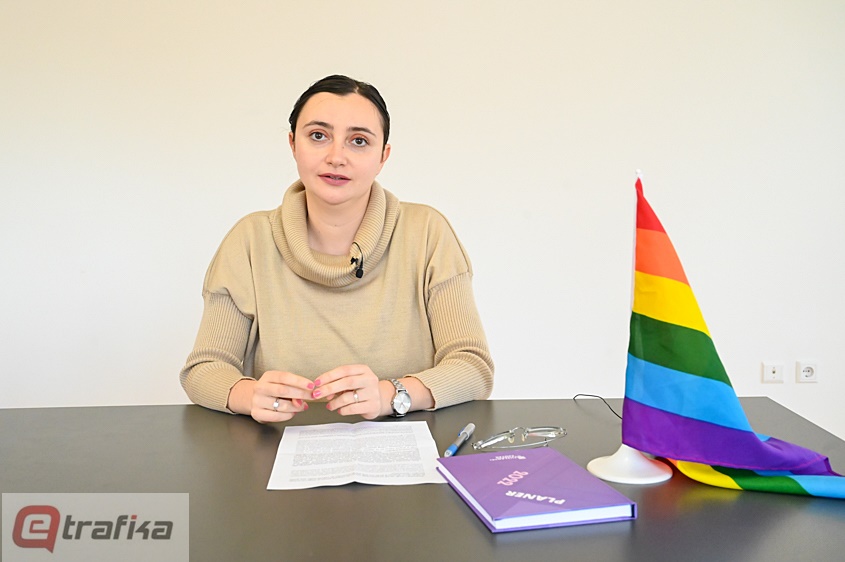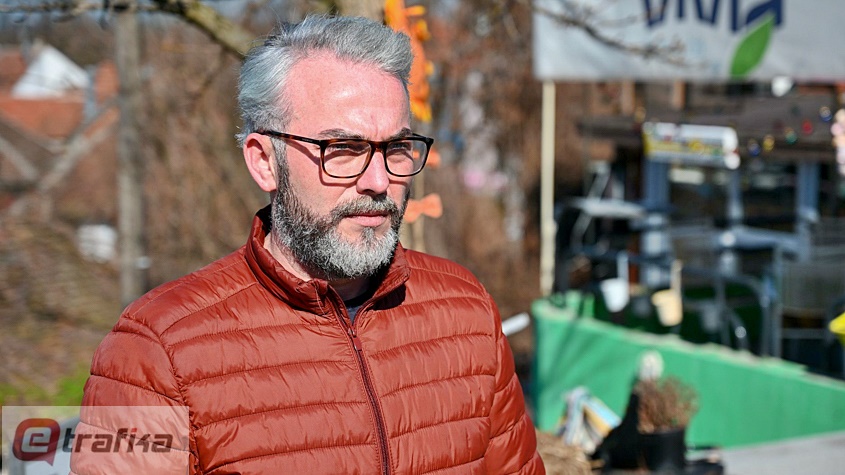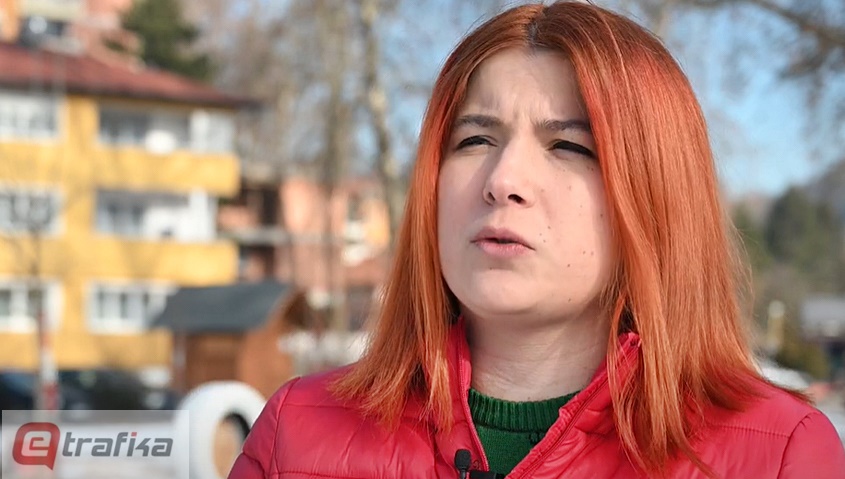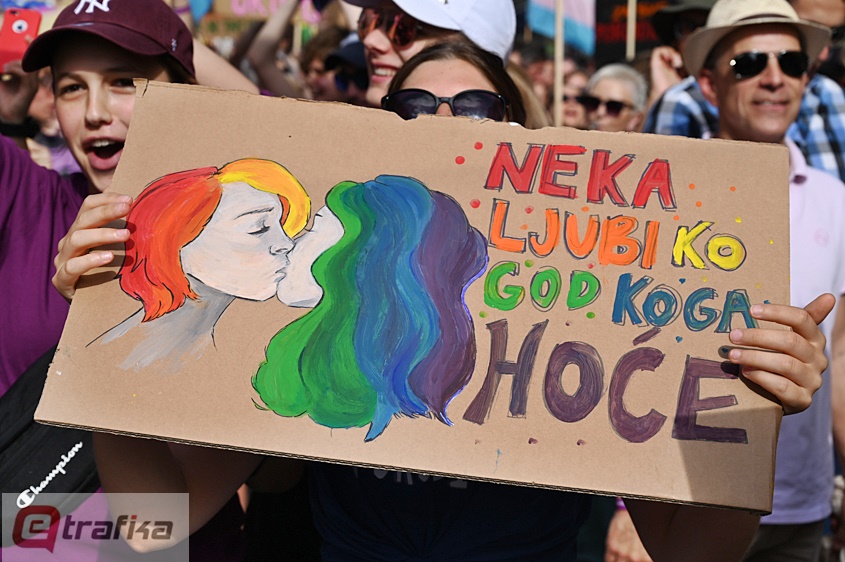Couples in Bosnia and Herzegovina are entitled to a maximum of five free IVF procedures, depending on the part of the country where they live. However, the relevant laws do not foresee the same rights for single women and same-sex couples. As a result of that, these women have to travel to other countries at their own expense and pay up to 11.000 EUR for just one procedure.
Written by: Vanja Stokic, Photo and video: Ajdin Kamber
Prohibition of sex discrimination is not foreseen in the FBiH Law on Infertility of Treatment with Bio-medically Assisted Fertilisation. Thus, discrimination on these grounds is practically allowed.
„This law is not the only one which excludes sexual orientation, gender identity and sexual characteristic from the parts prohibiting discrimination. There are a lot of other laws that should be harmonised with the Law on Prohibition of Discrimination, which actually incorporates these elements. Entity laws have recently been improved in the sense of standardising the practice of financing the IVF procedures throughout the Federation, but we are still facing the limitations of non-recognition of women who are not in any kind of formal partnership, but are heterosexual by orientation. They are not married, and they are not in a common-law marriage either. On the other hand, the laws do not recognise lesbians, bisexual women or transgender women. They have not been given an opportunity to become parents, to undergo the fertilisation procedure”, says Dalila Hasanbegovic Vukas from the Sarajevo Open Centre.

Because of this, women who do not have a partner, lesbians and bisexual women have go to other countries to undergo the mentioned procedure there. Of course, covering the costs by themselves and on the condition that the health care system of that particular country covers these groups as those allowed to undergo the IVF.
„As for the neighbouring countries, there is Croatia which unfortunately does not recognise lesbians. But it does recognise women who are not married or are not in a common-law marriage, which is surely a progress in comparison to Bosnia and Herzegovina. As far as the European countries are concerned, I have found out that after many years of limitations, Spain has enabled lesbians and bisexual women to access this type of health service. France as well. However, there are about twenty countries which do not allow lesbians to undergo this procedure, thus putting them in a disadvantageous position in relation to other women and couples”, emphasises Dalila Hasanbegovic Vukas.
Zeljko Lazarevic from the Brcko Centre for Community Support „Beba više“ („More Babies“) is of the opinion that such cases actually show if the state has a strategy to increase birth rate.
“This issue has been resolved in Sweden. Whether a woman is single, or is in the same-sex union, and wishes to undergo in vitro fertilisation procedure, the state will enable her to do so. And I think this is the common strategy of all those countries which are truly aware of how much birth rate has dropped and how there are only a few of us there, in other words, that only a few babies are generally being born”, he explains.
He adds that the religious communities have a strong influence on this, as well as on many other issues in Bosnia and Herzegovina.
„During our discussions with the representatives of legal or executive authorities, when we move to an informal part we very often hear their comment ‘can you imagine what the religious communities would say about this.’ We, as a secular society, should absolutely find the opinion of religious communities irrelevant. I believe that every person has a right to choose how he or she will live, how he or she will organise his or her life, have a baby, adopt a baby and everything else. I find this a basic human right that no one should have any influence on”, he emphasises.

Family laws in BiH have not yet recognised same-sex unions, therefore their legalisation would have an impact on the elimination of discrimination in the area of in vitro fertilisation.
„LGBTI families already exist in Bosnia and Herzegovina, there are individuals who live in the same-sex union, those who are building and want to build their families. However, the law does not recognise them as those who are entitled to certain rights. We, as the BiH Pride Parade, wish to achieve the same rights for all through our political protests, and we are fighting for equality before the law, so that the LGBTI couples could have families which would be legally protected. Because, family is about love, about understanding, about support, encouragement, mutual help, and everything else that a family brings. And this should be the same for everybody, this should enable us all to contribute to having a great and prosperous future for our country, Bosnia and Herzegovina”, says Anisa Pracic-Sehic from the BiH Pride Parade.

Right now, the problem could be resolved by amending certain parts of the law dealing with the prohibition of discrimination. More specifically, to include sexual orientation in the definition of discrimination, as well as gender identity and sexual characteristics.
„The law needs to be improved in many aspects. For example, we have no possibility to get donor cells from someone who is not our partner. Currently, there is no possibility for heterologous fertilisation, which would mean a lot to heterosexual partners, but also to those who are not living in such union”, highlights Dalila Hasanbegovic Vukas.
A glimpse of hope exists in the Brcko District, where this issue is not regulated by the law, but by the Decision which is easier to amend and modify. After the representatives of the „Beba više“ Centre approached the Health Insurance Fund, and protested against the fact that their two members had been denied the right to have in vitro fertilisation just because they are lesbians, the Fund showed understanding for their problem.
„So, very soon we will ask for another meeting with the Health Insurance Fund in order to see what are the possibilities for single women, and also for women living in the same-sex union wishing to have a baby, to fulfil their rights”, says Zeljko Lazarevic.







